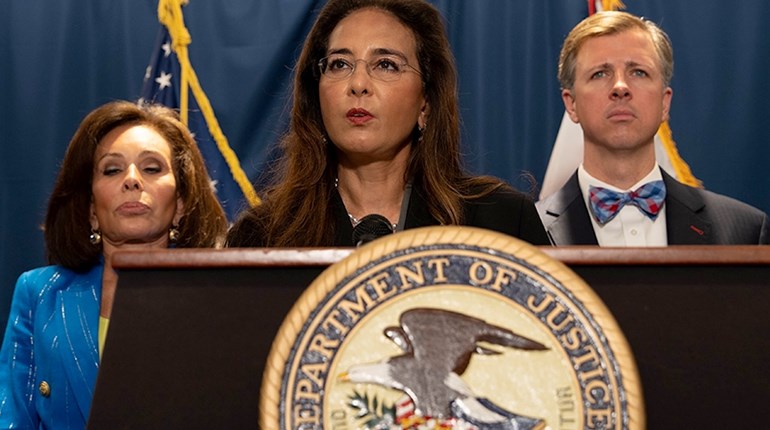
Since the 2007 Virginia Tech shooting of unarmed students and faculty, there has been a steady shift in favor of self-defense rights on college campuses, with “campus carry” being legalized in roughly a dozen states.
The Center for American Progress, an anti-gun thinktank opposed to self-defense on campus, now says it has a new way to stop the spread of freedom: send in the feds.
In a report released last summer, the group cites two incidents (seven years and 1,700 miles apart), and “research” from the radically anti-gun group Giffords, to allege dire consequences if the campus-carry movement continues to win. “To prevent shootings on college campuses, Congress should ban carrying guns at higher education institutions, like it already does on K-12 school grounds,” the report announces.
Of course, the law (in this case the Gun Free Schools Act of 1990) exempts persons with carry permits who are not otherwise prohibited by law. But the Center for American Progress has a solution for that, too: also ban these people from carrying on college campuses. (And even this, they say, is just a “floor” for building “stronger protections.”)
The Center suggests colleges advertise which ones allow firearms. There’s a knowledge deficit, you see. Applicants might want to choose colleges that ban guns, but right now they can’t tell the difference. (Which sort of flies in the face of their idea that campus carry creates Wild West shootouts.)
It’s tough, they say, “to research a state’s campus-carry laws and institutional policies to understand if, when and where a gun can be carried or stored.” (To be fair, some state laws aren’t straightforward, but that’s usually because of random exclusions, exemptions, and qualifications tacked onto those laws by gun-control advocates.)
The defund-the-police movement has also impacted college security; in fact, some university police departments have been defunded and disarmed—leaving campuses even more open to crime.
This Center for American Progress report even argues that colleges should have to say whether their security can be armed. This is an odd request given that criminals might also like to know these policies, as thieves, rapists, and all manner of other criminals certainly prefer disarmed victims to armed citizens, as well as disarmed first responders. Despite that common sense, this report concludes that “these efforts from federal policymakers can restore a sense of security at America’s colleges and universities.”
As usual, anti-gun groups carefully and craftily cherry-pick the rare-but-still-unacceptable negligent discharge, or someone leaving a gun in a bathroom stall (both of which have happened to the Secret Service) to claim guns on campus are dangerous. To call them a handful would be generous, but overall, virtually every college that saw campus carry legalized basically has had zero problems.
The report’s co-author admits that “the appetite to ban guns on campus at the federal level is pretty low,” but even if it wasn’t, it’s not immediately obvious that Congress would have federal oversight over state colleges. The federal government doesn’t have de facto jurisdiction over postsecondary education. That’s not how this works. There are 50 states, and therefore 50 “experiments” in self-governing democracies. Congress doesn’t have police powers to give state gun-control groups a bailout when their lobbyists lose the argument.


































